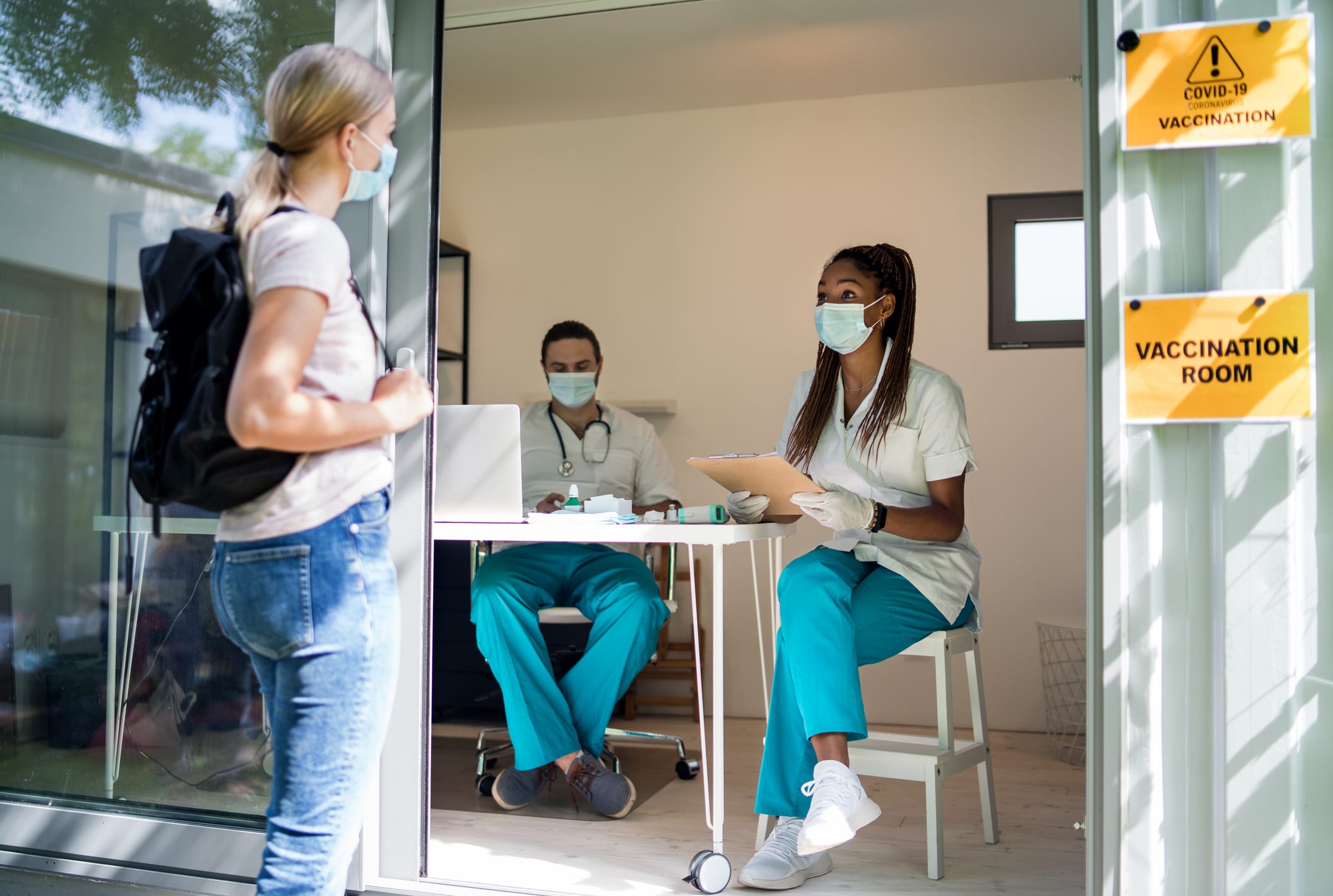The COVID-19 pandemic has left many Americans with difficulties in regards to health concerns, social awareness, and normality as we once perceived it to be. At the height of the pandemic, college and university students were not a “call to action,” targeted group, largely due to their youth and inability to be severely impacted by the virus. However, some studies have shown that diverting concerns away from young people could be detrimental to the student’s perception of COVID-19. Interning within the New York Department of Health and Mental Hygiene (NYCDOHMH) for the Queens Neighborhood Response Team (QNRT), I and two other Queens College (Q.C) interns focused our research findings on how the pandemic and the administration of vaccines has affected student’s mental health, communication, and intentions towards getting vaccinated.
During the midst of the pandemic–when vaccines were not yet available for anyone under the age of 50, there were a limited number of published articles highlighting the severity of COVID towards students and their health concerns. After consistent research spanning from January to April 2021, I found in my literature review that most articles on the subject lacked depth and reliable studies in relation to the lives of students.
As the COVID-19 vaccine became available for all adults, I found that studies have begun to show a decline of vaccines in arms. One factor is the likelihood of widespread uncertainty and unsteadiness within youths. After being excluded during the heat of the pandemic due to age restrictions, youths feel discouraged to take part in achieving immunity.
After presenting our group findings for the NYC DOHMH in April, there was an awakening of concerns within the department to figure out whether students would want to get vaccinated. Seeing the shift of focus from finding a vaccine for COVID-19 towards growing vaccine hesitancy, I went looking for answers from my peers at Q.C. and searching for a consensus on their perception of the vaccines, and whether social media can spread information to connect with the student population.
Keve M., one of my fellow interns who participated in the research study findings, explains: “This pandemic affected my mental health in many ways. I could not see my family, or friends for a very long time. It restricted me from doing certain things such as having a social life. Yes, I would definitely take the vaccine, I will be less at risk for catching COVID. If I do catch it, I would only have mild symptoms. Not only am I protecting myself, but I’m protecting my family as well. Social media can be used to host support groups and also have people who already took the vaccine speak to students about the benefits of it.” His insight was encouraging, but it opened the critical conversation of mental health disparities due to the lockdown and period of isolation.
My survey amplified the same recurring issues of mental health, with a positive response towards the vaccines–because participants agree that a normal lifestyle will be achieved after the population gets vaccinated. Another fellow Q.C intern who prefers to remain anonymous, states, “Yes, I will take it (the COVID-19 vaccine) because I want life to return to how it used to be as soon as possible.” Collectively, all the participants in my survey wanted to achieve a sense of normality, and they believe that taking one of the COVID-19 vaccines will allow that to happen.
The participants also believed that friendly and accurate pandemic updates across social media platforms are ideal.
The COVID-19 vaccines have slowed the spread of viral infection, and all participants from my study agreed that the vaccine is the most important factor for fewer COVID-19 outbreaks. Their message as a diverse, educated and hardworking body of students illustrates the idea that young people should educate themselves on what the vaccines mean for normalcy and calming an uptick in mental health concerns.
Ending this pandemic will require everyone’s commitment to protecting their peers and loved ones. Among its ability to mend the growing mental health concerns, COVID-19 vaccines are the only option for students to return to regular, in-person classes, maskless interaction, and a normal, daily routine. Getting the vaccine and having trust in each other and the government is essential for returning to a safe environment for all.











